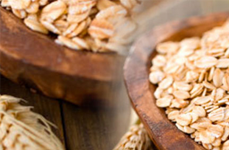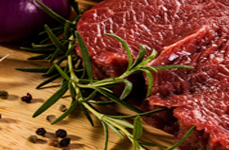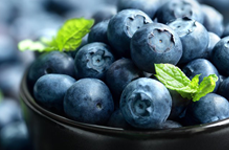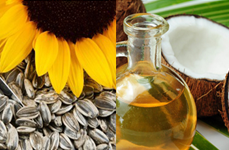There’s a saying that goes something like “the secret to a man’s heart is through his stomach.” While that old cliché is geared more towards romance than physical health and well-being, there’s an element of truth hidden within. Deep truth, in fact, which is that the secret to good health may very well lie in your stomach… in the form of proper digestive health.
Ellen Cutler, DC, author of MicroMiracles: Discover the Healing Power of Enzymes, explained, “Even if you eat good food every day, if you don’t digest it properly, undigested food can actually seep from the small intestine into the bloodstream, and the immune system reacts.”
Your body’s natural immune reaction to poor digestion can manifest in many diverse and potentially serious ways. Feeling fatigued more often than not? Gaining weight for no obvious reason? Dealing with bloating, heartburn, gas, indigestion or excessive burping? All these may be signs your digestive system isn’t working the way it should. Something’s missing.
So what’s going on? Why is your gut not doing its job? There may be a simple answer (and a simple solution)—digestive enzymes.
What Are Digestive Enzymes?
Digestive enzymes are the secret not only to proper digestion, but to overall health as well. They are the tools your body uses to break down the food you eat into usable nutrients that your body can then absorb and put to use fueling, repairing, replenishing and facilitating all of your tissues and bodily processes.
Mother Nature, being the genius she is, provides all the necessary digestive enzymes right in the foods we eat (or should be eating). Fruits and vegetables come pre-loaded with the right enzymes your body needs to break down and absorb all the nutrients contained within.
The problem is much of today’s produce is grown in nutrient-depleted farmland that has been overworked and drenched in chemical fertilizers and pesticides. As a result, our “fresh” fruits and vegetables arrive to the dinner table with critically low levels of natural digestive enzymes. Cooking at high heat also destroys what few enzymes there may be in conventionally grown produce. As a result, your digestive system may be struggling to extract all the vital nutrients your body needs to function properly.
How Do Digestive Enzymes Work?
The food you eat doesn’t magically turn into healthy skin tissue or energy for your heart to pump. You need digestive enzymes—a lot of them—to help break down your food into usable nutrients. While there are thousands of known enzymes found in nature (and many more likely yet to be discovered), there are eight main digestive enzymes that assist in breaking down different categories of food.
• Protease: key enzyme for digesting protein
• Amylase: key enzyme for digesting carbohydrates
• Lipase: key enzyme for digesting fats
• Cellulase: key enzyme for breaking down dietary fiber
• Maltase (or Malt diastase): key enzyme for converting complex sugars into glucose
• Lactase: key enzyme for converting milk sugar (lactose) in dairy products
• Phytase: key enzyme for overall digestion, especially in extracting and utilizing B vitamins
• Sucrase: key enzyme for digesting most sugars
All of the above digestive enzymes are available as dietary supplements, and considering how much of the standard American diet is made up of processed and/or cooked food, a substantial portion of the population could likely benefit from incorporating a digestive enzyme supplement in their daily routine.
Back to the digestion journey… everything starts in your mouth. Enzymes, primarily amylase, get to work right away when you begin chewing your food. These enzymes start the process of breaking down your food into usable nutrients.
Once inside your stomach, protease does the heavy lifting of breaking down protein, and then it’s off to your small intestine, where about 90% of nutrient absorption takes place. Lipase and amylase work inside your small intestine to convert fats and carbohydrates into fuel and other nutrition for your body. From there, any remaining micronutrients get absorbed and put to use.
Top Food Sources of Digestive Enzymes
It’s sad, but true: the average American diet is lacking in natural digestive enzymes. The processed foods we love are almost devoid, and our high-heat cooking methods finish off the job, minimize the enzyme content of food. If you want to up your intake for the sake of proper digestion and nutrient absorption, here are a few of the best foods you can add to your diet.
• Fermented Foods: Foods like sauerkraut and kimchi are often thought of as good sources of live probiotics, but they’re also excellent sources of digestive enzymes. The combination of viable enzymes and probiotics makes for a great boost to your digestive system.
• Pineapple: Pineapple is a natural source of bromelain, which contains digestive enzymes called cysteine proteinases that assist in the breakdown of dietary protein.
• Papaya: A great natural source of proteolytic enzymes like papain, papaya is another great raw food source of digestive enzymes. Papain helps your body digest meat and other proteins by breaking down the protein into amino acids that your body then uses for growth and repair.
• Sprouts, Seeds and Legumes: Sprouted foods are rich in natural enzymes, many of which help your gut break down and assimilate nutrients. The sprouting process naturally boosts the enzyme content of the produce.
• Raw Honey & Bee Pollen: While you might not find bee pollen on the shelves at your average grocery store, you should be able to find raw honey. Both are great sources of digestive enzymes, but bee pollen in particular is an amazing product of Mother Nature. Not only does it contain a broad spectrum of digestive enzymes, bee pollen also provides nearly every other vital nutrient required by the human body.























LEAVE A COMMENT :
Comments sort : Newest / Oldest / Most Upvoted